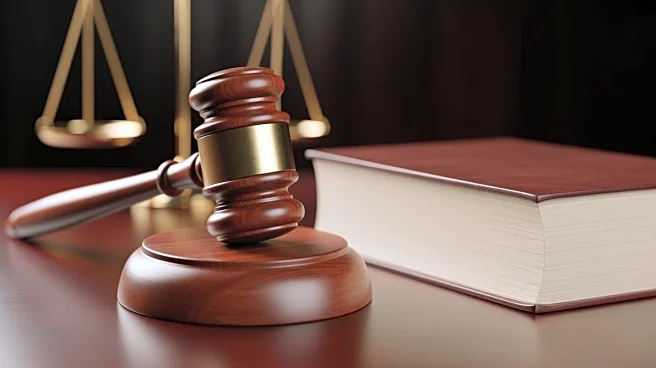What's Happening?
The U.S. House of Representatives is advancing a bill to repeal a controversial provision that permits senators to file lawsuits for $500,000 if their phone records are searched by federal investigators without prior notification. This provision was part
of a legislative package aimed at ending the government shutdown. The bill is expected to pass with a two-thirds majority under suspension of the rules. Senate Majority Leader John Thune has defended the provision, stating it provides a legal remedy for senators against potential misuse of power by the Justice Department. The law mandates service providers to inform senators if their data is seized, unless the senator is under criminal investigation. The provision is retroactive to 2022, allowing senators whose records were subpoenaed during the investigation into President Trump's efforts to overturn the 2020 election to potentially sue the government.
Why It's Important?
The repeal of this provision is significant as it addresses concerns about the balance of power between the legislative and executive branches. Critics argue that the provision was self-serving and inserted without proper debate, undermining public trust in government processes. The ability for senators to sue over data searches could set a precedent for how government accountability is managed, particularly in investigations involving high-profile political figures. The move to repeal reflects broader tensions over privacy rights and governmental oversight, with implications for how future investigations might be conducted and how lawmakers are protected from potential overreach.
What's Next?
If the House successfully repeals the provision, attention will turn to the Senate's response. Senate Majority Leader John Thune has not committed to a vote but has expressed regret over the provision's inclusion. The repeal could lead to further discussions on privacy rights and the scope of federal investigations. Senators affected by the provision, such as Lindsey Graham, have indicated plans to pursue legal action, which could result in prolonged legal battles and influence future legislative measures regarding privacy and governmental authority.















